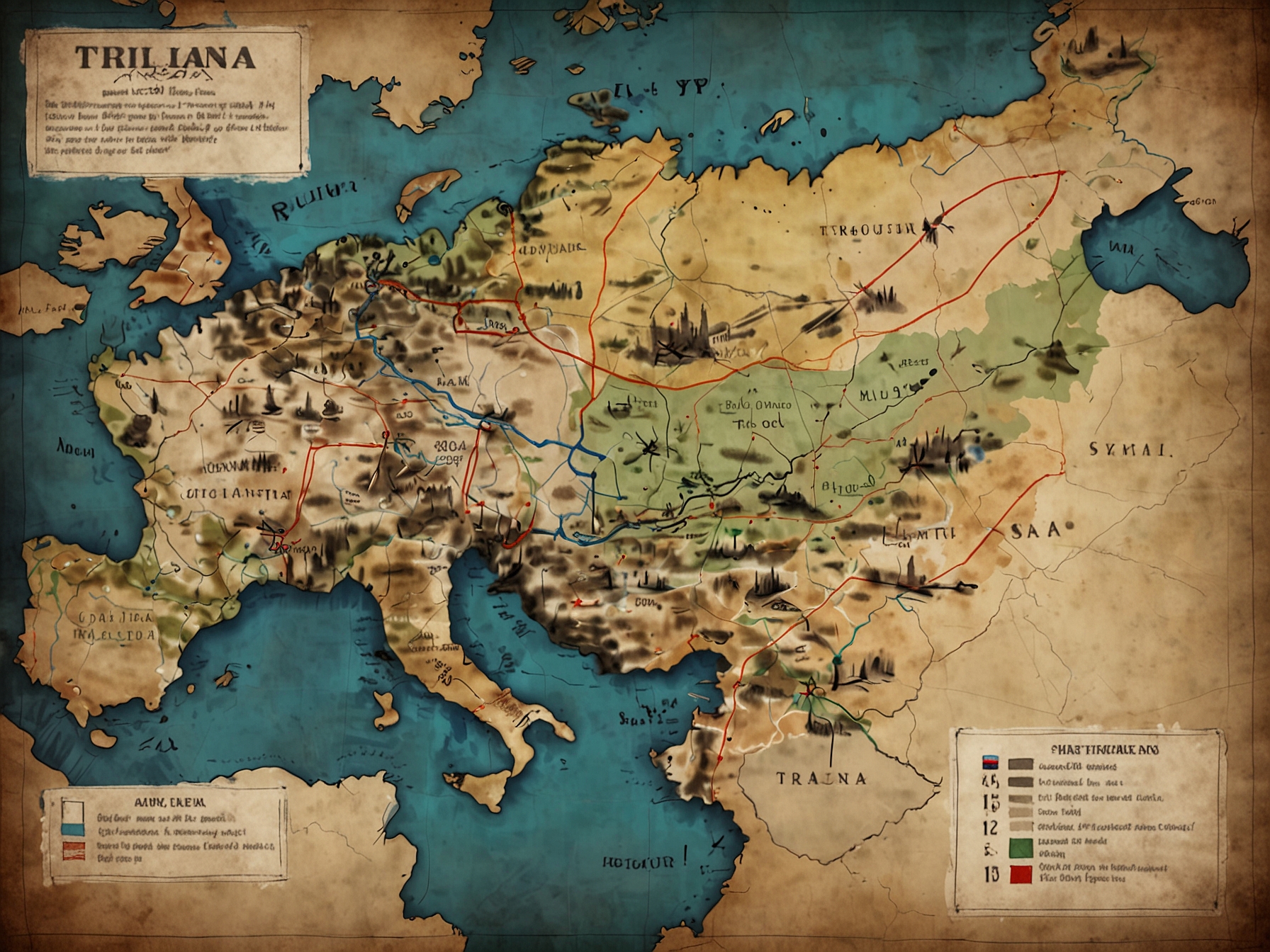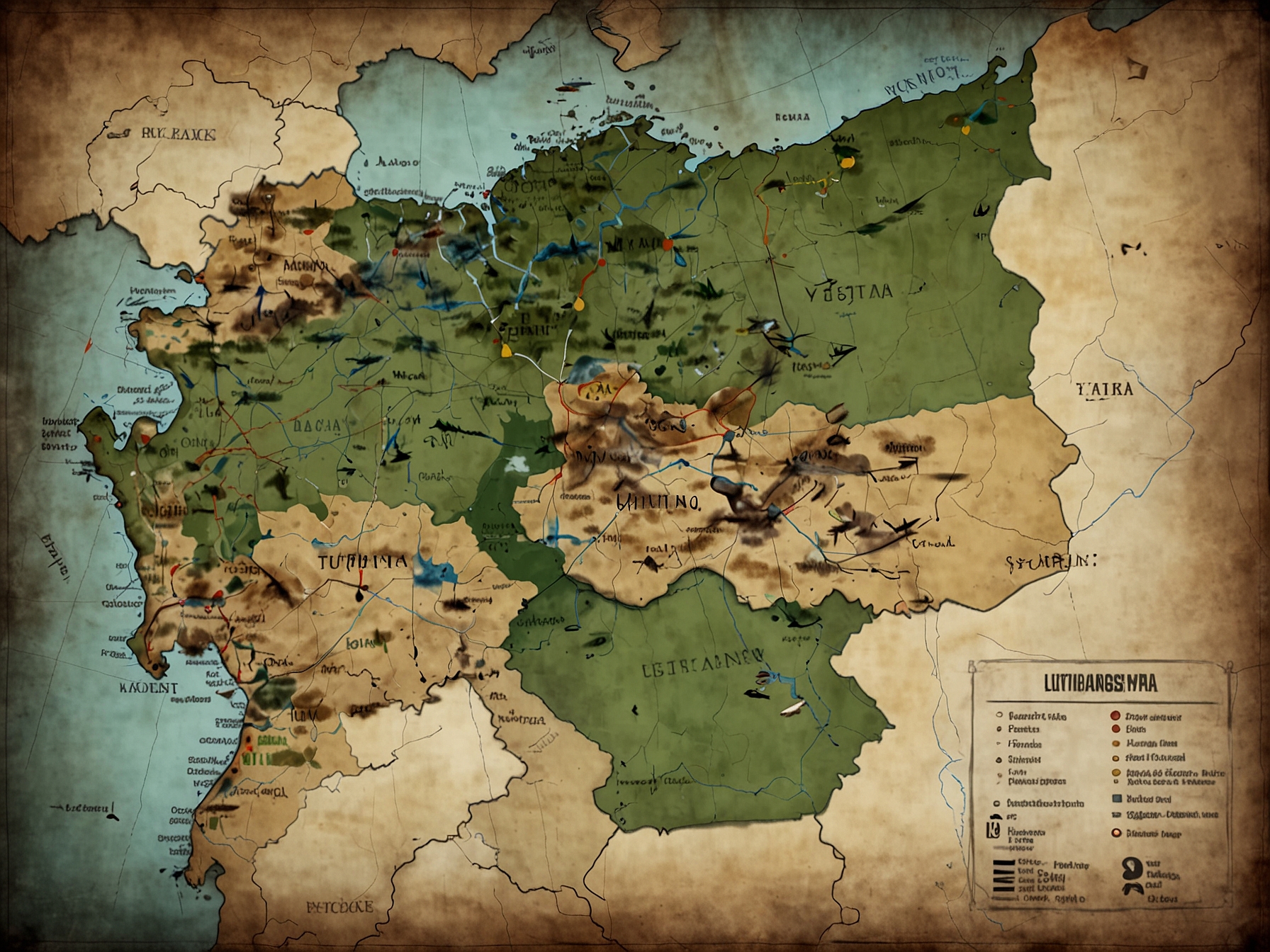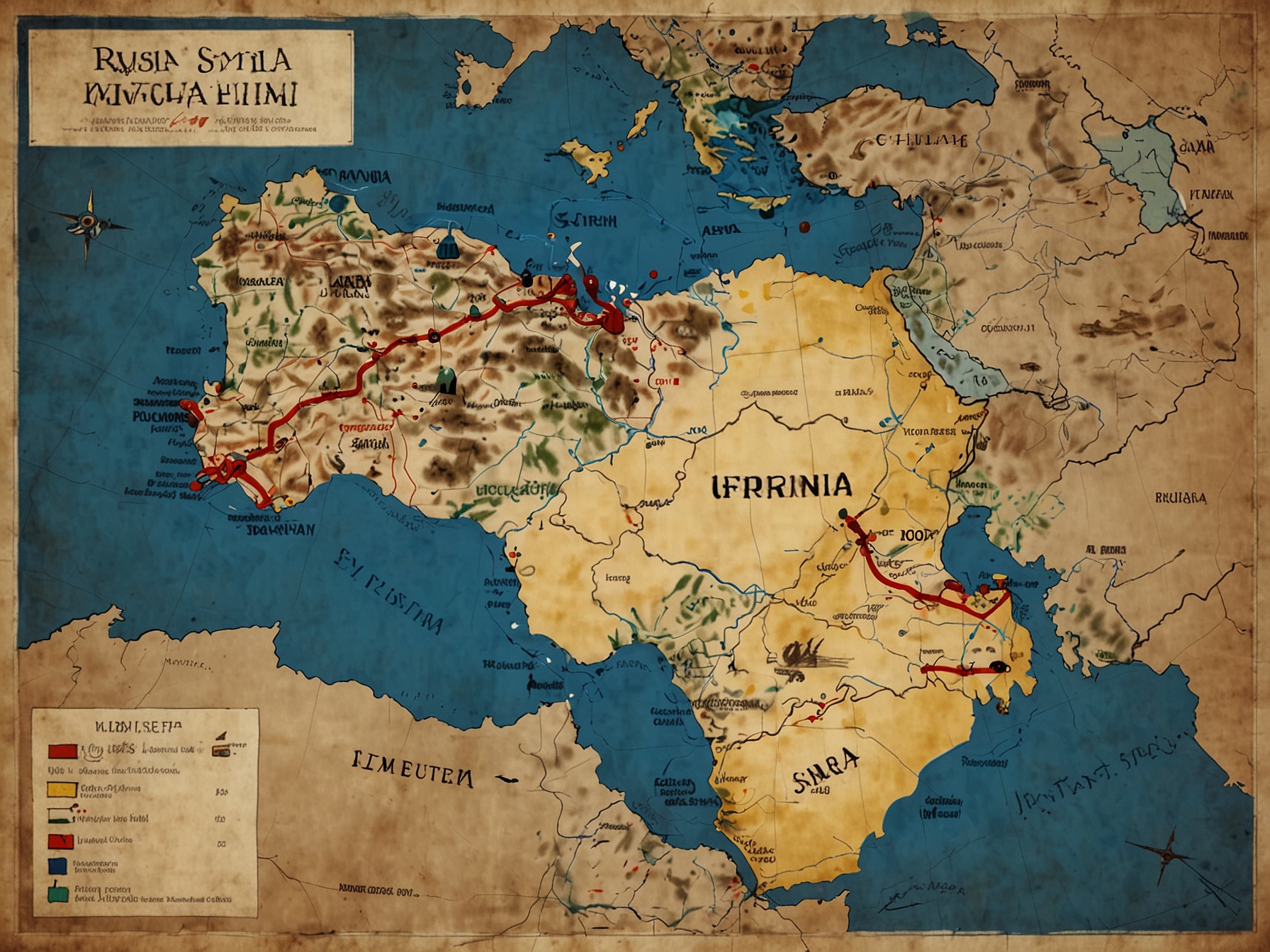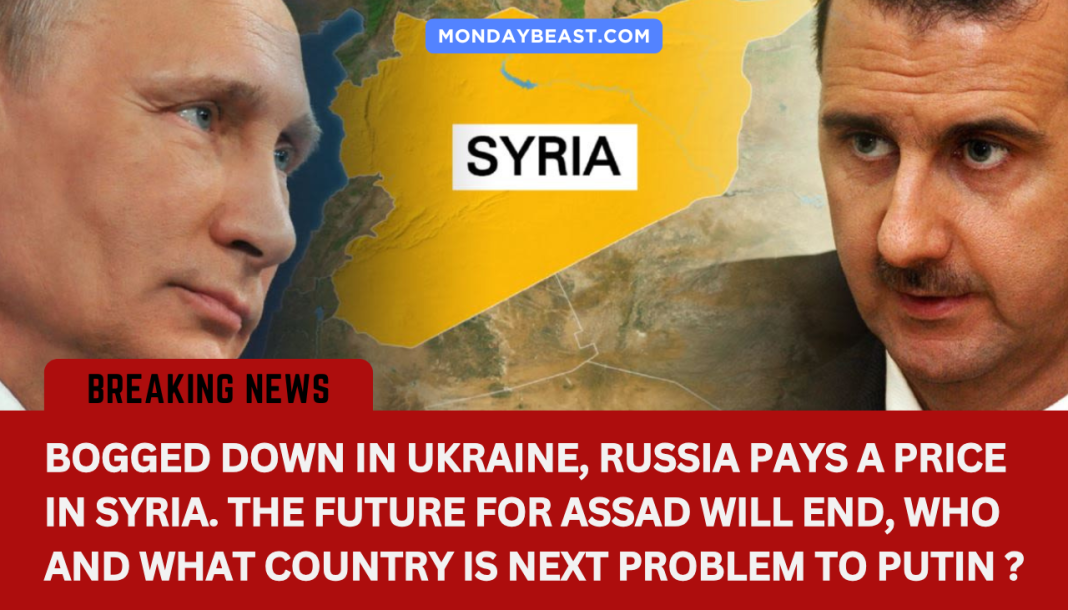Russia’s military focus shifts from Syria to Ukraine.
In 2017, President Vladimir Putin declared victory in Syria. At that moment, he seemed poised to solidify Russia’s influence. Fast forward to December 2023, and the landscape has dramatically changed.

As rebel forces surged, Putin’s promises of unprecedented strikes disappeared into the desert air. One can’t help but ponder: What does this mean for Russia’s power on the global stage? Analysts are now sounding the alarm.
The Kremlin’s involvement in Ukraine has exacted a heavy toll on its military presence in Syria. Experts like Anton Mardasov have remarked that this cost has rendered Russia a bystander in the intensified conflict. The apparent absence of military support for Assad raises questions about Russia’s reliability in global affairs.
The very foundation of Putin’s image as a powerhouse is being shaken. Could this signify the end of Russia’s ambitions in the Middle East? As December unfolded, the situation grew dire for the Assad regime.

Russia found its capabilities severely limited, unable to deliver the airstrikes it once rained down on opposition forces. The Kremlin’s Foreign Ministry issued statements of “extreme concern,” and yet, where was the military might when it mattered? It seems that Putin’s firepower is now divided.
This raises critical questions for Russian strategy. Without control of the naval base at Tartus or the air base at Hmeimim, Russia risks losing its foothold entirely. Eugene Rumer points out that these bases serve as vital links to Russian influence across the region.
What happens if these are lost? For years, Syria stood as a testament to Russia’s resurgence, sending shivers up the spines of foes in the West. The long-buried memories of Russia’s devastating air campaigns linger cruelly in the minds of many.

But as these bases turn into pawns in the geopolitical chess game, Russia must reconsider its options. Amidst this chaos, Putin’s change in tone is striking. State media, once rife with terms like “terrorists” aimed at rebel forces, has shifted to more neutral language.
This raises eyebrows: Is Russia recalibrating its diplomatic approach? With Turkey’s influence looming large, could partnerships change the course of this turbulent situation? The West watches intently as Russia’s credibility takes a hit.
Putin has sought to portray Russia as a resilient counterweight against American dominance. But when push comes to shove, can Russia actually protect its allies? The flowing questions hang in the air, weaving a narrative of disappointment for many of Putin’s supporters.
Now think about the young Russian servicemen deployed to Syria. Many may have enlisted hoping for glory and valor. Instead, they’re left stranded in a military nightmare while their government grapples with a war far away.
How does this impact morale? It’s a human element often overlooked. In the midst of war, the complexities deepen. Russia’s past alignment with Assad’s brutal regime once seemed indestructible.
Yet as rebel forces gain ground, one cannot help but wonder whether the tide may turn for both Assad and Putin. The strategic losses could ripple beyond the borders of Syria, embroiling future relations with Middle Eastern powers. Through this turmoil, the geopolitical chessboard continues shifting.
Russia’s next steps may involve delicate negotiations with old allies who now hold the keys to its regional ambitions. Will it forge an alliance with Turkey or lobby for support elsewhere? Or will bureaucracy cloud Moscow’s vision?
As December winds down, observers anticipate the fallout of these events. What lies ahead for Russia, its military, and its global standing? Each day seems to unveil new layers.
Can Russia reclaim its influence in a landscape reshaped by war, negotiation, and changing allegiances? The answers remain elusive, dancing just out of reach like mirages in the desert sun. The world continues watching, waiting, and questioning how deep this geopolitical shift will run.




